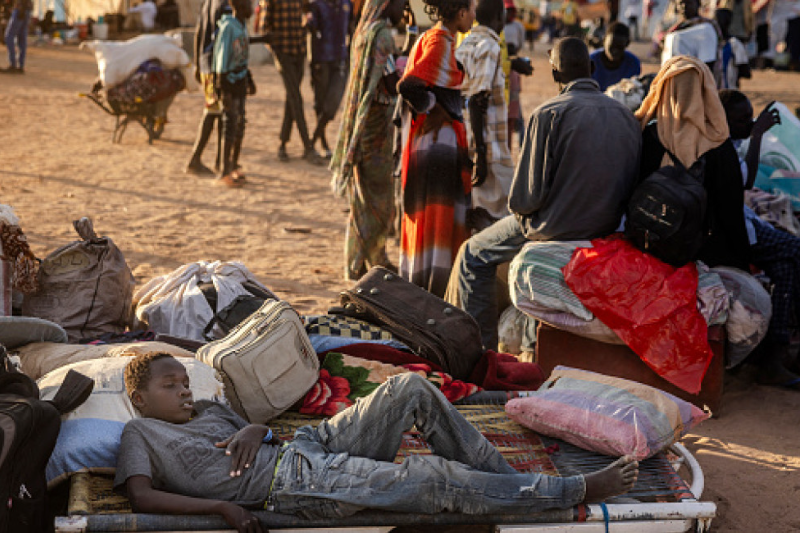As Sudan suffers almost sixteen months of violence between rival groups, the United Nations labeled on Tuesday the humanitarian catastrophe in the country a catastrophic disaster. The Director of Operations and Advocacy at the Office for the Coordination of Humanitarian Affairs (OCHA), Edem Wosornu, fiercely attacked the blockage of vital supplies that puts the lives of malnourished children in North Darfur under threat. She said in a Security Council meeting of the situation as “an entirely man-made crisis” and “a shameful stain on their collective conscience.”
“A famine indicates that we are too late. We therefore did not do enough. It indicates we, the global community, have failed. Wosornu said: “This is a completely man-made crisis and a shameful stain on our collective conscience.”
Assistant Executive Director for Workplace and Management Stephen Omollo said the Famine Review Committee found famine in the Zamzam camp, close to El Fasher in North Darfur. Noting that these concerns have gone unheeded, he emphasized that assistance organizations are being stopped from accessing key sections of the nation where food and other basic supplies are needed.
Emphasizing the need of the Security Council to condemn the countries supplying weapons and logistical support to the Rapid Support Forces (RSF), Al-Harith Idriss al-Harith Mohamed, Sudan’s Permanent Representative to the United Nations, said that their involvement aggravates the conflict and worsens the humanitarian crisis. “Some major countries have openly refused to support the inclusion of a condemnation of the RSF in resolution 2736,” he said.
A relief organization claims that the blockade imposed by a well-known paramilitary group causes hungry children in a camp for war-torn people in Sudan’s western Darfur region a great risk of death. ” Regarding the issue of famine, if we are experiencing a fifth or even a hundredth phase of IPC famine, we are ready to work together with you and will ensure the smooth distribution of humanitarian assistance,” Al-Harith Idriss said.
More than half of Sudan’s population, over 25.6 million people live in extreme poverty. The United Nations reports that although the Humanitarian Response Plan for Sudan this year is set at $2.7 billion, it is less than one-third financed having only collected $872 million by early August.
Keep Reading
The protracted fighting in Sudan has resulted in a terrible humanitarian scenario whereby millions of people suffer from extreme hunger and vital supplies are denied to those who most need them. Particularly in the Zamzam camp, the neglect of the international community to sufficiently handle the problem has led to a terrible famine in some areas of the nation. Because of the continuous fighting and paramilitary group blockades, aid agencies still find great difficulty providing required relief. International action and support are desperately needed as the situation gets worse to minimize suffering among Sudanese people and stop more crisis escalation.

